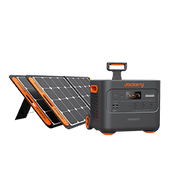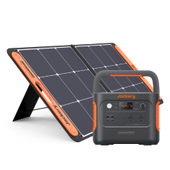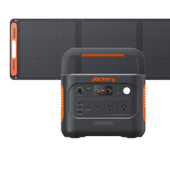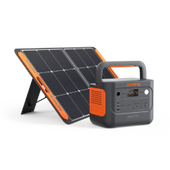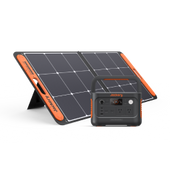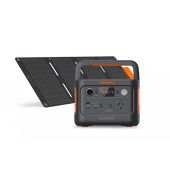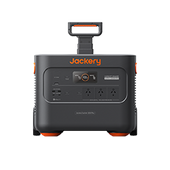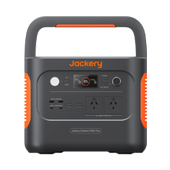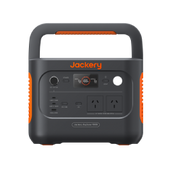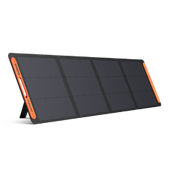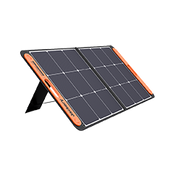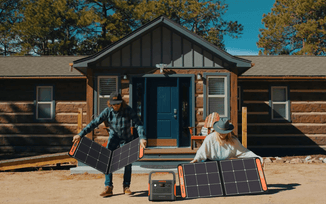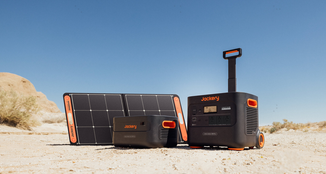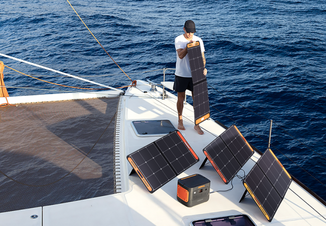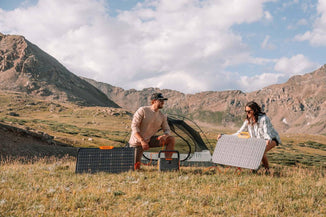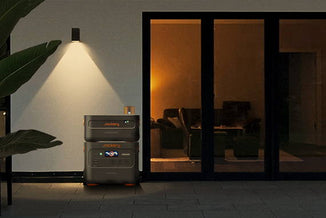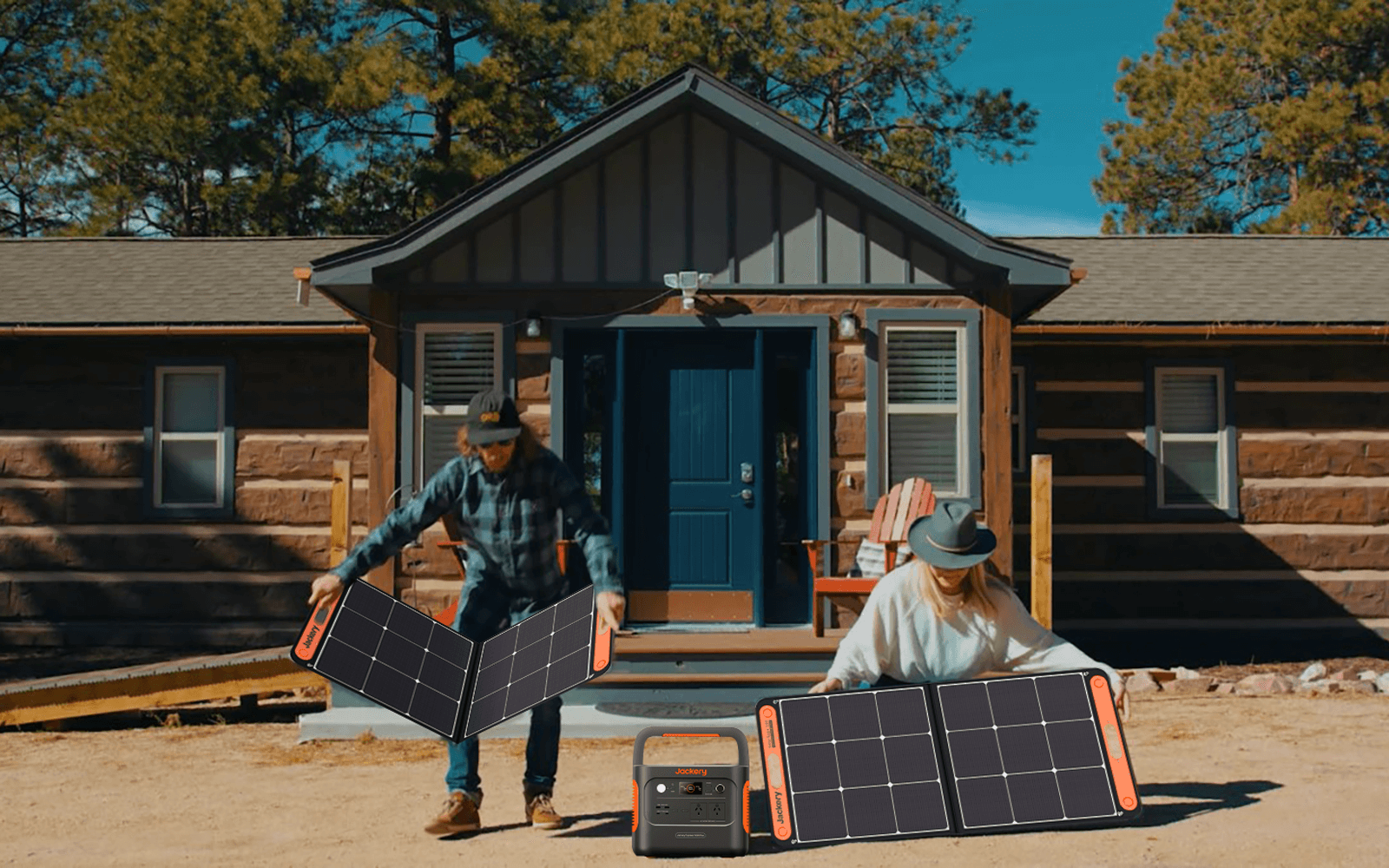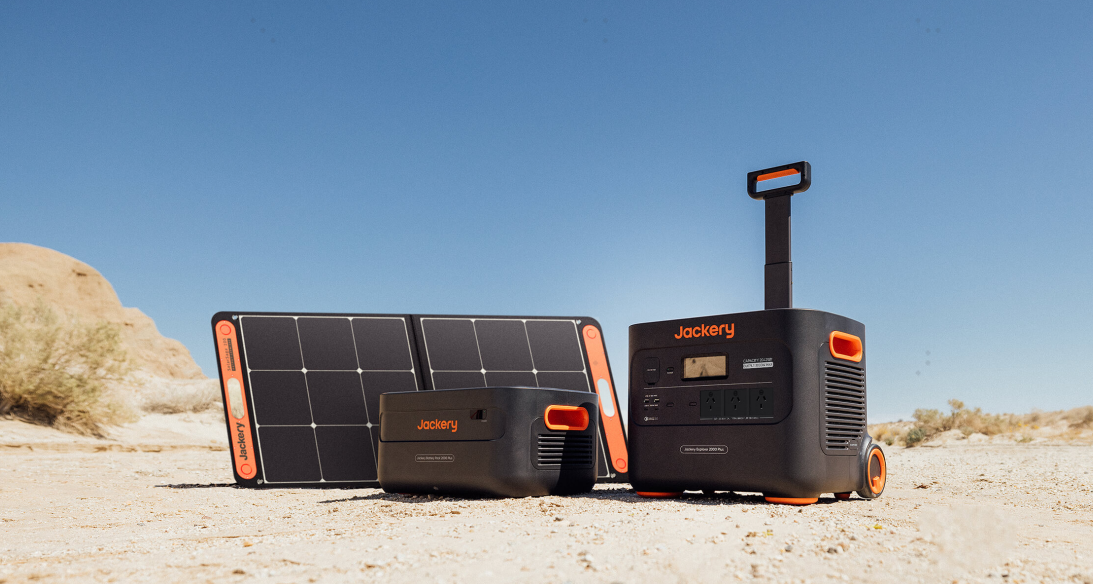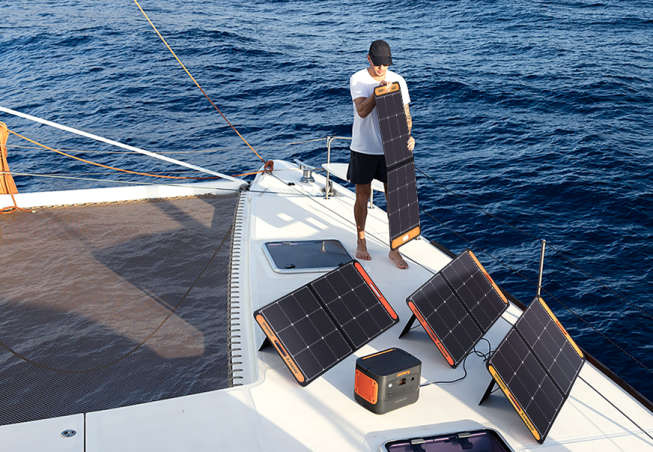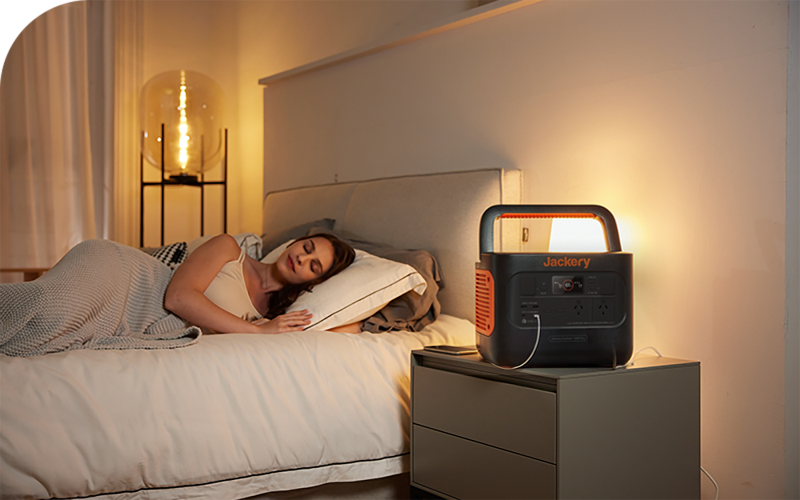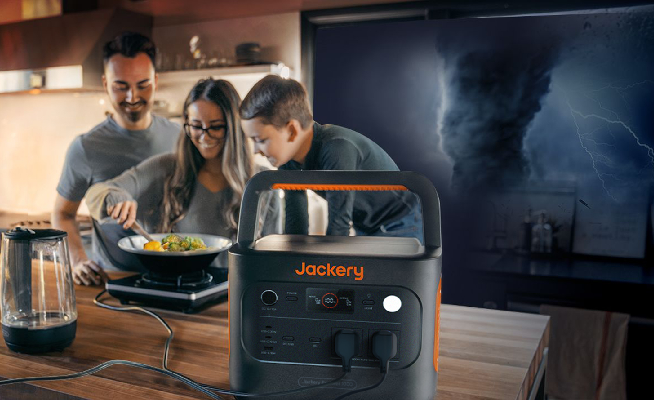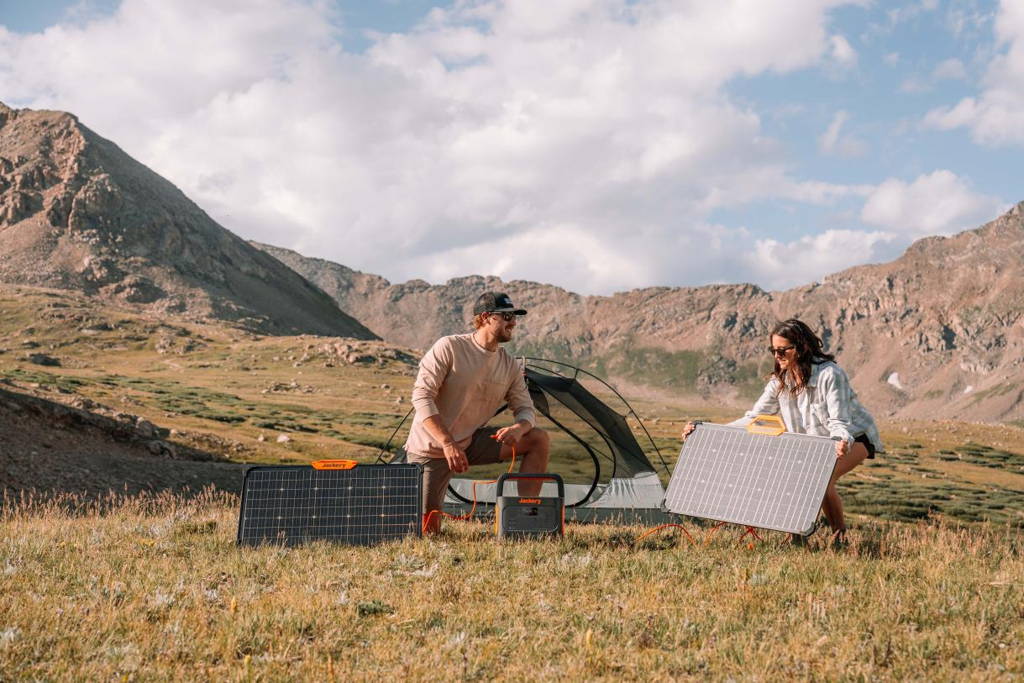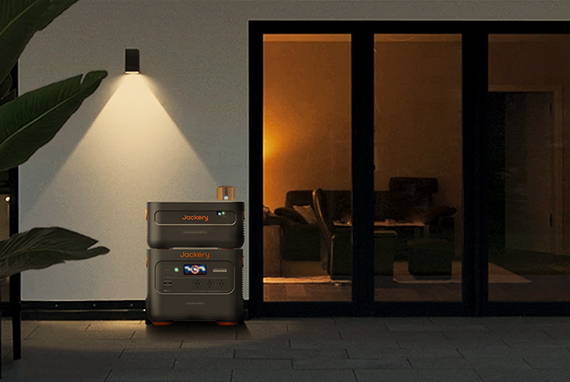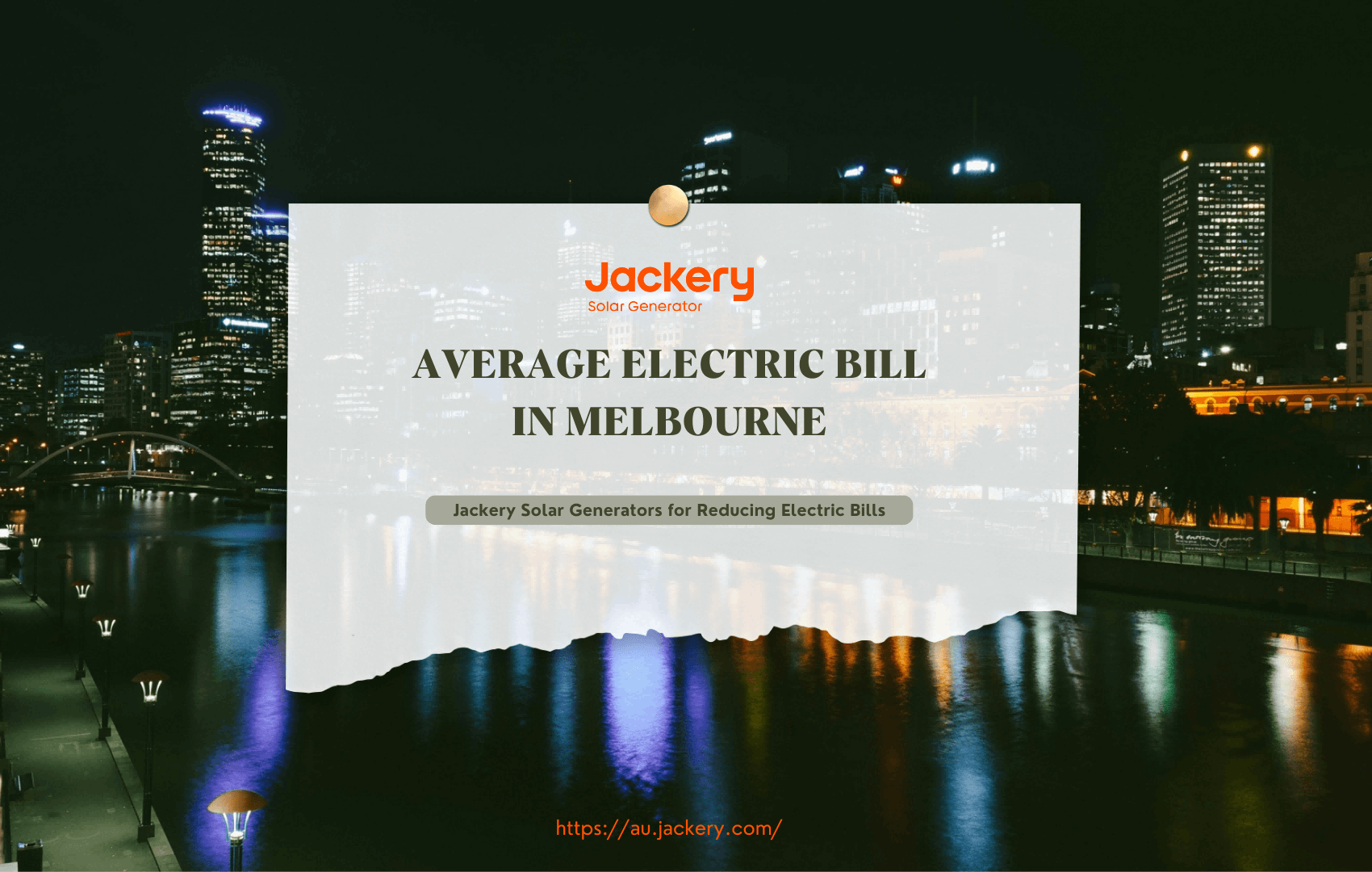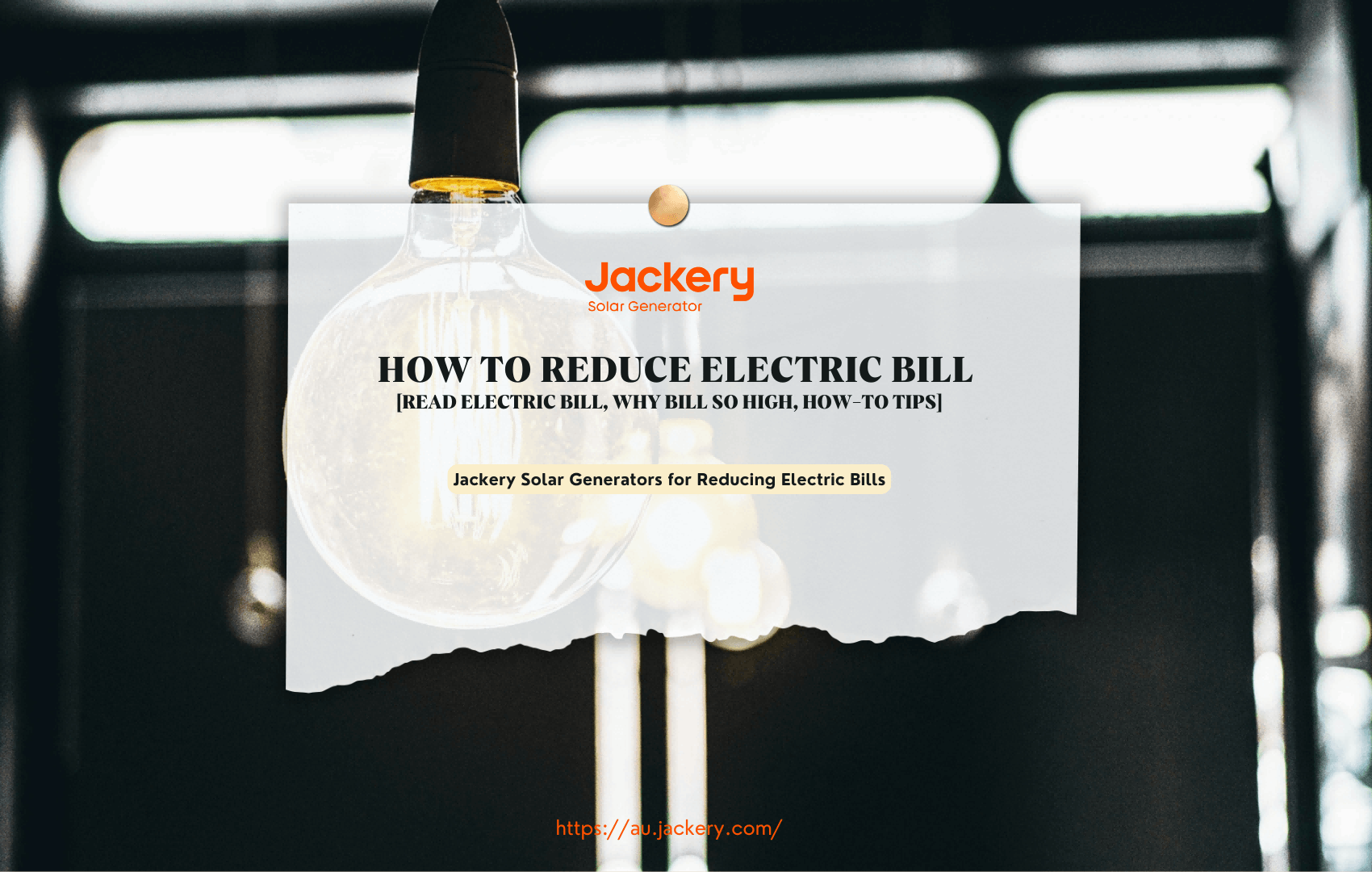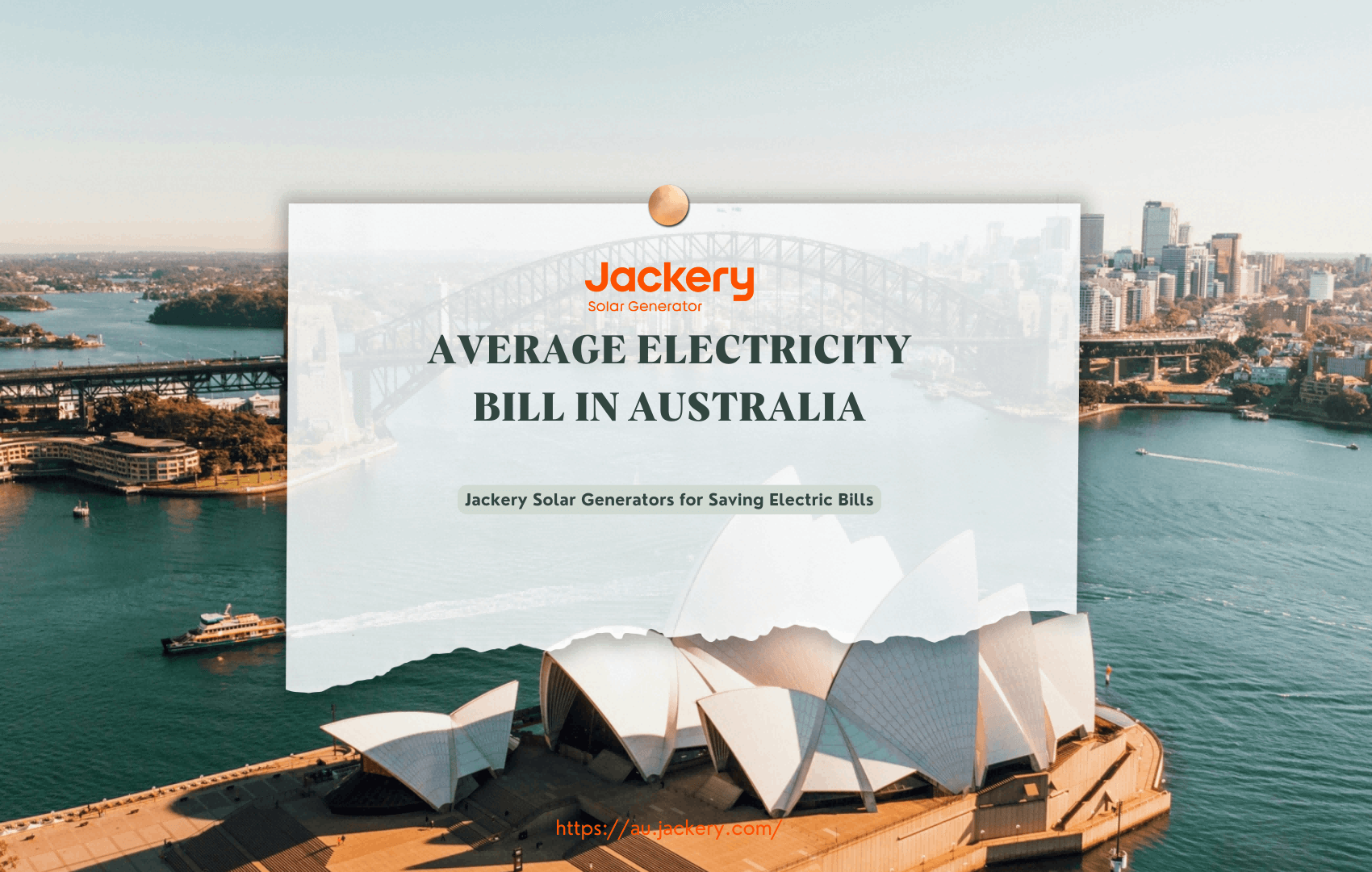|
Key Takeaways: |
|
• By 2023, Victorian households will pay 30% more electricity bills, and small businesses will pay up to 31% more electricity bills, according to the report. 500,000 Victorians and small businesses will face an average annual price increase of $350 and $750. • On May 30, 2024, it was confirmed that Victoria had reduced electricity prices. About 340,000 Victorian homes will pay $1,655 a year from July 1, 2024, down 6% from the previous year. • Victorian residents can get a $250 electricity-saving bonus using the state's energy comparison website to search for the cheapest electricity plan. • Explore the benefits of incorporating the Jackery Solar Generator 2000 Plus and 1000 Plus into your solar setup to maximise energy efficiency and cost savings. |
Have Electricity Costs in Victoria Increased in Recent Years?
Have electricity prices in Victoria increased in recent years? There is no doubt that electricity prices in Victoria have risen dramatically, with increases almost every year in recent years. As a result, the Hazelwood Power Station in the Latrobe Valley was forced to close, increasing energy prices across the state.
In 2017, Victorians relied on neighbouring states to increase their electricity supply. Electricity rates in Victoria continued to rise in 2018. According to the report, by 2023, Victorian households will pay 30% more electricity bills, and small businesses will pay up to 31% more. 500,000 Victorians and small businesses will face an average annual price increase of $350 and $750.
New information shows that hundreds of thousands of Victorian households could see $100 less in their electricity bills each year as the government prepares for gas shortages. On May 30, 2024, it was confirmed that Victoria had reduced electricity prices. About 340,000 Victorian homes will pay $1,655 a year from July 1, 2024, down six per cent from the previous year. Additionally, 58,000 small businesses will save an average of $260, or about $3,530, on their electricity bills next fiscal year.
Although the government's electricity tariff concessions have reduced electricity bills to a certain extent, they cannot relieve the pressure on Victorian households. However, as the electricity market becomes more competitive, consumers can choose better electricity plans and suppliers with lower electricity prices.
What Is the Average Electricity Bill in Victoria?
Whether you live in regional Victoria or the Melbourne CBD, getting the best electricity deals is essential. But these days, the price of everything is going up. But nothing has been more complicated to take than the surge in electricity prices. As bad as it is, households across Victoria are bracing for rising power bills.
However, not all electricity rate hikes are created equal. Due to differences in electric markets across the state, residents in some areas may see their bills increase ten times more than others. In addition, due to the different prices of electricity plans and the discounts available, Victorians' electricity bill burden needs to be shared or addressed.
Like other states in Australia, Victoria is part of the National Energy Market (NEM). However, the state's Essential Services Commission sets the default offer in its electricity market. In addition, the state government's policy of providing some renewable energy discounts also provides some relief from electricity bills.
Victorian residents can get a $250 electricity-saving bonus using the state's energy comparison website to search for the cheapest electricity plan. However, Victoria's average annual electricity bill in 2023 will increase by about 25% compared to 2022. The average annual electricity bill and the increase vary from supplier to supplier.
|
Provider |
2022-23 Average Annual Bill |
2023-24 Average Annual Bill |
Increase |
|
AusNet |
$1632 |
$2026 |
24.1% |
|
CitiPower |
$1293 |
$1517 |
21.5% |
|
Jemena |
$1353 |
$1720 |
27.2% |
|
Powercor |
$1412 |
$1793 |
27% |
|
United Energy |
$1324 |
$1666 |
25.8% |
|
Victorian Average |
$1403 |
$1755 |
25.1% |
(Data Source: 9news)
So, what is the average electricity bill in Victoria? A typical annual electricity bill in Victoria is approximately $1,755. Victoria's energy market is highly competitive, with various discounts and offers that can significantly impact your yearly energy bill. In Victoria's unregulated energy market, your electricity prices can be reviewed and adjusted regularly, ensuring you always have the best plan for you.
Electricity Prices in Victoria
Electricity prices generally comprise a user charge and a supply charge. Typically, the user and supply charges are the main cost drivers associated with electricity bills for households and small businesses. Victoria's electricity suppliers are free to offer competitive prices, generally lower than the reference price set by the Victorian Government's market offer.
The user charge is the charge for each kilowatt-hour (kWh) of electricity used by customers. Depending on your electricity plan and supplier, user charges in Victoria range from 19c/kWh to 25c/kWh.
No matter how much electricity your home uses, a supply charge will appear on your customer's bill. These daily rates represent the cost of electricity from the grid to your home. Victorians can expect to pay about $1 per day in supply charges.
It should be no surprise that finding the best electricity plan for your money requires careful selection. As mentioned, Victorians tend to sign up with larger, more well-known electricity suppliers.
However, picking a retailer based on name alone can lead to missed savings. You can log on to Victoria's energy comparison website to analyse and compare the electricity plans you like to choose the electricity supplier and electricity plan that best suits you. The following table is part of the Victorian electricity plan information for reference only.
|
Electricity Provider |
Electricity Plan |
General Usage Rate |
Daily Supply Charge |
|
AGL |
Value Saver |
22.39¢/kWh |
89.89¢/day |
|
Alinta Energy |
Homesaver |
22.40¢/kWh |
89.89¢/kWh |
|
Arcline by RACV |
Home Energy Plan |
25.65¢/kWh |
54.29¢/day |
|
CovaU Super Saver |
Super Saver |
23.84¢/kWh |
91.05¢/day |
|
Dodo |
Market Offer |
27.27¢/kWh |
80.67¢/day |
|
EnergyAustralia |
Flexi Plan |
28.71¢/kWh |
115.25¢/day |
|
Engie |
Blue Perks |
28.71¢/kWh |
115.25¢/day |
|
GloBird Energy |
Boost |
29.15¢/kWh |
99.00¢/day |
|
Lumo Energy |
Value |
19.23¢/kWh |
77.94¢/day |
|
Momentum Energy |
Nothing Fancy |
23.54¢/kWh |
103.73¢/day |
|
Nectr |
100% Clean |
22.65¢/kWh |
90.93¢/day |
|
Origin Energy |
Go Variable |
22.40¢/kWh |
89.90¢/day |
|
OVO Energy |
The Free 3 Plan |
25.85¢/kWh |
93.50¢/day |
|
Tango Energy |
eSelect |
19.42¢/kWh |
108.90¢/day |
|
1st Energy |
1st Saver Online |
22.00¢/kWh |
113.30¢/day |
(Data Source: Canstar Blue. Rates and products are subject to change. Accurate as of June 2024.)
What Factors Affect the Average Electric Bill in Victoria?
Two main factors affect your electricity bill: how much electricity you use and how much it costs. Here's a breakdown of these two factors.
Electricity Consumption
Using more electricity means you'll have a higher electricity bill. Electricity consumption varies across Victoria and is affected by weather conditions, the number of people in the household, personal habits and property size.
Number of People
Your electricity consumption depends on how many people live in your home. Generally, smaller homes with two or three people will have lower monthly electricity bills than larger homes.
More people in your home usually means:
- More rooms and floor space means more places to cool or heat.
- Running multiple electrical devices at once uses more energy.
- More cooking appliances.
- More hot water for showers, etc.
Personal Habits
Electricity use varies based on personal habits, such as how long you shower and use appliances and electronics. Even small habits, like turning off the lights when you leave the house, can affect your electricity consumption.
Size of Your Home
Generally, the bigger the house, the more electricity it uses to heat or cool. The bigger your home, the more appliances and electronics that use electricity.
How Often You Use Appliances
How much electricity you use depends on how often you use your device. For example, the more often you use certain appliances, such as your washing machine, TV or game console, the more electricity they use. These appliances can quickly add to your electricity bills, especially inefficient ones.
Electricity Prices
Electricity prices are another critical factor that affects your electricity bill. Electricity prices depend on the electricity plan and supplier you choose.
Are you satisfied with your electricity plan and supplier? When was the last time you changed your electricity plan and electricity supplier? You may need more time to shop around and compare prices. Worse, you may incur the dreaded loyalty tax if you've always used the same supplier.
However, switching electricity plans and suppliers can lower your monthly electricity bill. Some providers offer discounts or lower prices than competitors to entice you to sign up. Consider switching to a better electricity plan if your bill exceeds the average.
How to Lower Your Electric Bill in Victoria?
Electricity is a significant household expense and doesn't mean you're living paycheck to paycheck. Consider some practical strategies to help you lower your electric bills, ease the financial burden on your family, and prevent you from wasting money on expensive bills.
Here are some steps you can take to lower your electric bills:

Tip 1: Understand How Much Electricity You Use
First, you need to understand what appliances and electronics your family uses. Then, check to see if any unnecessary electronic devices or appliances in your home consume a lot of electricity.
Turn off or unplug electrical appliances or electronic equipment that is not needed. Some devices continue to consume electricity after being plugged in (Whether it is in standby mode or not in use).
Tip 2: Regular Review and Comparison of Electricity Plans
By regularly checking your power plan to match your usage, you can better manage your power consumption and save money. It's a good idea to periodically check to see if your current provider offers the best rate or if you can switch to another plan or provider (perhaps with a more competitive price) and higher discounts and offers. After comparing, you can choose a better and more efficient power plant.
Tip 3: Adjustments to Daily Habits
Minor adjustments to your daily habits can save money on your electricity bill by avoiding unnecessary electricity consumption.
- If you use heating or air conditioning, close doors and windows.
- Consider using large appliances such as washing machines and dishwashers during off-peak hours, which can reduce your electricity bills to a certain extent.
- Replace old light bulbs with LED bulbs to extend their lifespan and reduce electricity consumption.
- Heating water also requires electricity, so adjusting the temperature of your hot water system from 80C to60C can save up to $70 per year.
- If you use the sun to dry your clothes, you will use the dryer less each week.
Tip 4: Install A Solar System
Solar energy is a significant cost saver in Victoria and is essential to meeting the state's electricity needs. Installing a solar system can save a lot of money, and although it requires an upfront investment, the Victorian government's incentives can help reduce costs.
Selecting a solar energy system offers significant advantages, including cost savings on electricity bills, environmental sustainability by lowering reliance on fossil fuels, energy independence, increased home value, low maintenance requirements, and access to possible government incentives; basically, it offers a clean, renewable energy source that can significantly lower your carbon footprint over time.
Solar energy offers a clean, renewable energy source that can significantly lower your carbon footprint. If you want to try solar power with a limited budget, consider investing in a solar generator first. Here, we highly recommend the Jackery Solar Generator, which combines Jackery Solar Panels with a Portable Power Station to fully exploit solar energy.
Jackery Solar Generators Explained
Purchasing a solar energy system can drastically lower electricity expenditures, particularly in areas like Victoria, where energy prices rise. Jackery, a reputable brand in the solar sector, specialises in high-quality solar items, such as solar generators, solar panels, and portable power stations.

Jackery Solar Generators offer a stable power source that can help reduce monthly expenses by offsetting the electricity used by household appliances. The Portable Power Station maximises solar energy capture and storage when used with Jackery Solar Panels, guaranteeing you will always have electricity available. Its numerous output connections enable different devices to be charged simultaneously, making it suitable for indoor and outdoor use.
Jackery Portable Power Station also offers various charging choices, such as solar panels, carports, wall outlets, and other electric sources, to provide a versatile and reliable energy source.
Jackery Solar Generator 2000 Plus
The Jackery Solar Generator 2000 Plus is a top-tier portable power station designed to deliver substantial off-grid power, making it an excellent ally for reducing electricity costs. Its vast capacity and reliable output make it an excellent choice for anyone looking to lower their energy usage at home in Victoria.

- Expandable Capacity for Extended Power: The 2000 Plus can be expanded with additional battery packs, taking its base 2 kWhup to an impressive 12 kWh. This extended capacity covers everything from short power outages to longer outdoor trips. With an output expandable to 3000W, it outperforms many standard 2 kWh models, powering almost any essential household appliance and giving you greater flexibility.
- Built to Last with Premium Safety Features: This model demonstrates Jackery's commitment to reliability. Its LiFePO4 battery has a 10-year lifespan and supports over 4,000 charge cycles. The generator also includes Jackery's ChargeShield technology, which provides 62levels of protection and ensures safe indoor and outdoor operation.
- Quiet and Environmentally Friendly: Designed with ultra-quiet operation, the Explorer 2000 Plus delivers energy without noise or emissions. Whether at home or off-grid, you can use this generator comfortably while reducing your overall energy consumption, making it a perfect addition for environmentally conscious users in Victoria.
|
*Review from Our User |
|
We have been experiencing frustrating power outages on our farm, so we purchased a Jackery 2000 Plus to help manage this issue. It is much quieter than my Generac generator. With a 3000w/6000w surge, it can effectively power various devices. It functions flawlessly with our pump and weeder. |
Jackery Solar Generator 1000 Plus
Compact yet powerful, the Jackery Solar Generator 1000 Plus is a reliable backup for everyday and emergency use. Its portability, power, and efficiency blend make it a valuable tool for energy savings at home.

- Adaptable Backup for Home or Travel: With a capacity of 1264Whand a 2000W output, the Jackery 1000 Plus supports up to 99% of household devices. It's expandable up to 5 kWh with additional battery packs, offering 1-3 days of power in case of outages. Imagine running essentials like your fridge, lights, and even laptops without using grid electricity.
- Fast and Flexible Charging Options: Featuring advanced solar charging, the Explorer 1000 Plus reaches full power in just 5 hours with four SolarSaga 100W solar panels. It also supports rapid wall charging, fully charging in only 1.7 hours. This flexibility lets you choose the fastest, most convenient way to power up, giving you quick and reliable energy whenever needed.
- Enhanced Safety and Longevity: The 1000 Plus is equipped with LiFePO4 cells, designed to last 10 years with daily use, and Jackery's ChargeShield technology. This combination provides stable power, protecting your appliances from damage and giving you a dependable power source for years.
|
*Review from Our User |
|
We needed to purchase a few additional items to connect these with the two solar panels I already had and integrate them into our home system, but it was a minor issue. It functions as promised and is quieter than a large generator, although we rely on the more significant generator during overcast or rainy conditions. |
How Much Does It Cost to Live in Victoria?
Victoria offers an excellent and diverse urban experience, but there are a few things to consider, especially the cost of living. The cost of living in Victoria includes many factors, including housing, food, transport and entertainment.
However, in general, your final cost of living in Victoria will depend on the lifestyle you want to live. The following cost of living in Victoria is for reference only.

(Data Source: Instarem)
The above table is just a reference data set based on personal consumption prices and average living expenses. It is recommended that more accurate data be calculated based on income level, consumption habits, location, and specific monthly costs.
Housing Costs: Accommodation is usually the most significant part of everyone's budget, whether a single person, a family or a student. No matter where you are, the closer you are to the central business district, the higher the price.
Transportation Costs: Many locals use public transportation, such as buses and trains. Transportation costs in Victoria may vary depending on the chosen mode of transportation. Commuting requirements and personal choices determine transportation costs.
Utility Costs: Utilities include electricity, heating, water and waste. Utility costs depend on your home's size, needs, and the service provider you choose. Electricity is the most expensive utility in all of Australia, including Victoria. Victoria is also known for its unpredictable weather. Therefore, you may need to heat your home in the winter and cool down in the summer, which may increase your energy costs.
Food Costs: Supermarkets are available everywhere in Victoria, with many supermarket chains. These supermarket chains compete on daily prices to keep prices low and attract customers. Of course, family size will also affect grocery expenses.
Entertainment Costs: Victoria has a wide range of entertainment, from the arts to sports and music. The great thing is that entertainment in Victoria is affordable, so you can have fun and socialise without breaking your budget. In Victoria, you can also join the membership program of some cinema chains, which will bring you additional movie deals and discounts.
Average Electricity Bill in Victoria FAQs
The following are the frequently asked questions about the average electricity bill in Victoria.
- Are Victoria's electricity bills rising badly?
Victorian households are feeling the financial pressure of rising electricity costs. Energy costs for some dual-use homes (gas and electricity) in Victoria can be as high as $3,000 per year. The cost of dual-fuel household energy in Victoria will increase by more than $500 between 2023 and 2022.
- What should I consider when choosing an electricity plan?
It affects a family's electricity bills and living expenses, so you must be extra careful when choosing an electricity plan. Not only compare a single electricity price but also pay attention to the following aspects:
- Does the electricity plan have incentives or discounts?
- Does the discount on the electricity plan apply to your family?
- Are there any additional conditions for the incentives and discounts provided by the electricity supplier?
- Are there any additional fees for terminating the contract early?
- Does the electricity plan incentivise you to cooperate with the current supplier?
- What incentives are offered by competing electricity suppliers?
- Are you eligible to benefit from the solar feed-in tariff?
In addition, you can use your recent electricity bill as a reference to compare electricity suppliers carefully and plans to ensure that you choose the most cost-effective strategy.
- Can installing solar power reduce electricity bills in Victoria?
Solar systems provide many benefits to their owners. A home with a small 3kW system can save between $756 and $1,000 annually. But is Victoria an excellent place to install solar power? Victoria is a great place to install a solar power system. With over 2,200 hours of sunshine annually, it is a good region for solar power generation.
The Victorian Government offers a range of solar rebates and financial incentives to encourage more households to go solar. In addition, Victoria has a wide range of high-quality solar panel brands. So, people living in Victoria have a good reason to install solar systems in their homes or businesses.
Final Thoughts
While the cost of electricity in Victoria may be becoming unbearable, homeowners can lower their electricity bills and save money. Managing household electricity costs is possible when you understand the average electricity bill in Victoria and how electricity rates are set. To determine if you're getting the best value for money and if your supplier is offering the best service, read your electricity bill, check your electricity plan regularly and compare market offers to see what other better options are.

